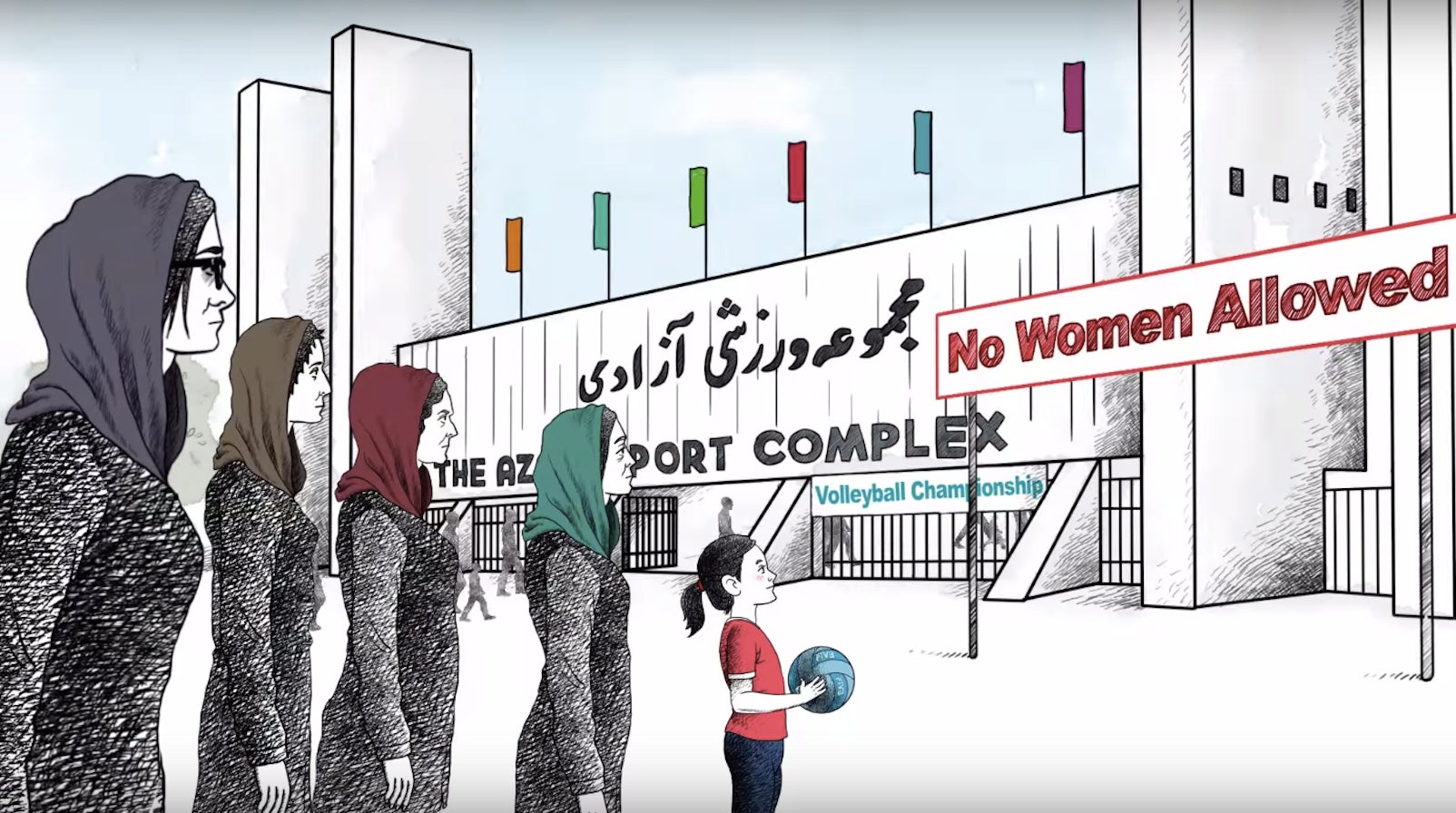Iran is hosting an international volleyball tournament only men will be allowed to watch
If you love sports as I do, imagine your excitement to see one of your favorite teams make the playoffs or compete in a major tournament.


If you love sports as I do, imagine your excitement to see one of your favorite teams make the playoffs or compete in a major tournament.
Now imagine how you’d feel if you and all your female friends were barred from the stadium?
This is the sad reality for women in Iran, who for the past decade have fought for the simple right to go to stadiums to watch popular sports like volleyball and football. The Iranian government has banned women and girls from watching men’s volleyball tournaments—and has even arrested women trying to enter stadiums. Of course, this is just a symptom of a host of serious rights violations against women in Iran, from discrimination in personal status laws like marriage, divorce, and child custody to unlawfully detaining human rights defenders who peacefully advocate for women’s rights.
Since the 1980s, Iran has banned women from attending men’s football matches as spectators—and FIFA took no action to stop that discrimination. Because there was no sanction, the world should not have been surprised when Iran extended the ban to other sporting events, including volleyball matches, in 2012.
The International Volleyball Federation (FIVB) controls the sport around the world, deciding where international competitions take place and overseeing matches.
Last November, the FIVB said that Iran would not be allowed to host future volleyball tournaments until it lifted its discriminatory ban on female spectators. But Iranian authorities held men-only matches in Tehran throughout the summer (including both the FIVB World League and Asian Volleyball Confederation tournaments). Only men could buy tickets, and police were stationed to arrest any women who tried to enter the 12,000-seat Azadi (“Freedom”) Stadium. This blatant discrimination is contrary to the “Fourth Fundamental Principle” of the FIVB’s own constitution—as well as the Olympic Charter.
How did the FIVB punish Iran for breaking the rules and hosting a summer full of volleyball matches off-limits to women?
They didn’t. Instead, the FIVB has just awarded the (men’s) Beach Volleyball World Tour open event to Iran—to take place in February 2016.
The FIVB’s response to Human Rights Watch questions about the denial of access to women was weak: “As a sports organization, the FIVB has no power to dictate cultural or social paradigms.” This bow to hardliners in Iran is inconsistent with the FIVB’s claims to gender equality. Access to sports and public spaces for women and girls is not a “social paradigm.” It’s a basic human right.
Ultimately, the FIVB’s approach is making it harder for Iranian women to fight for their rights. And Iran’s hardliners learned that international sports federations will cave and sacrifice principle under pressure.
This is why Human Rights Watch is launching a campaign, #Watch4Women, to press the FIVB and the Iranian government to allow women to attend volleyball matches in Azadi Stadium and other sports facilities.
The fight for gender equality is taking place across Iran, and this would be just one step forward. But women in stadiums could help move the ball down the field for women’s rights in Iran and open key public spaces to women and girls.